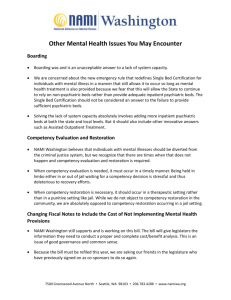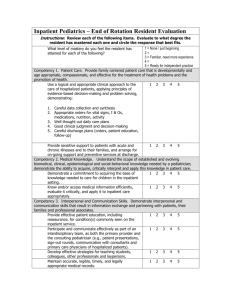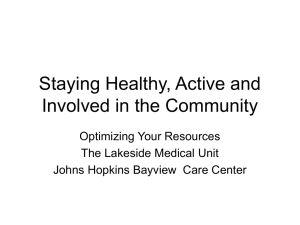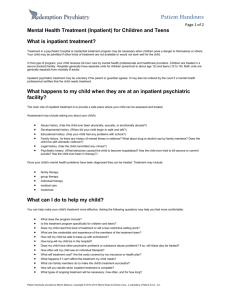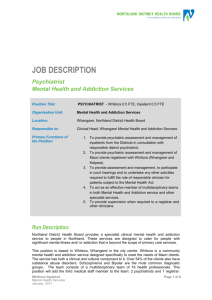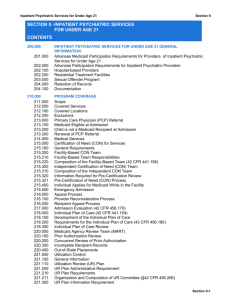Budget Talking Points
advertisement
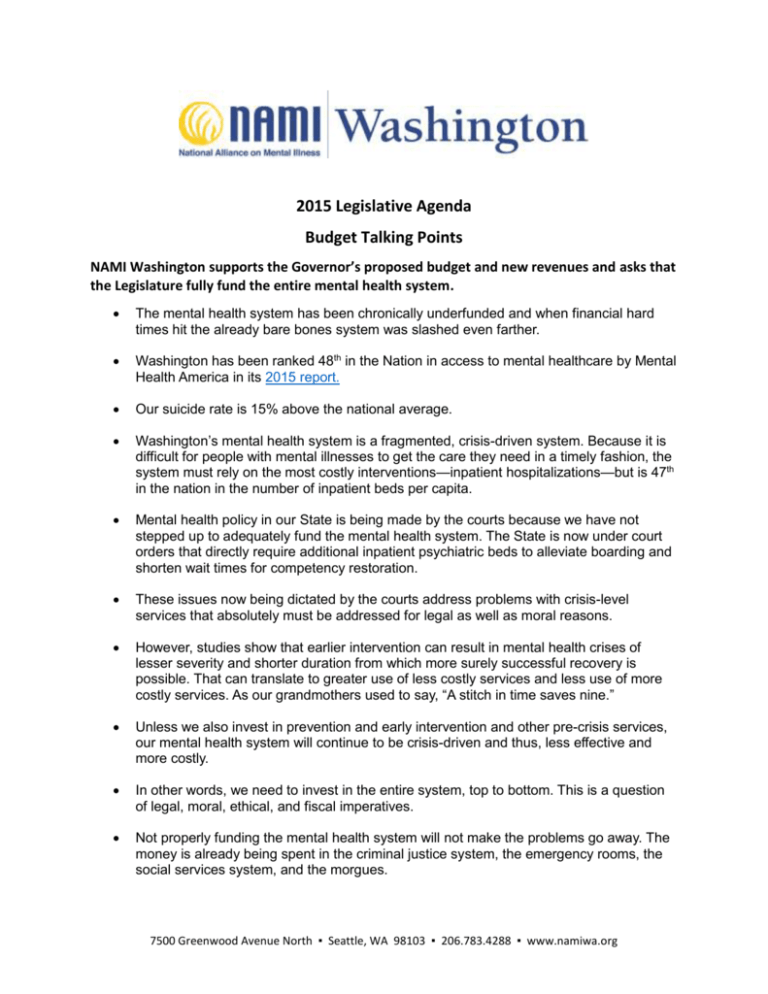
2015 Legislative Agenda Budget Talking Points NAMI Washington supports the Governor’s proposed budget and new revenues and asks that the Legislature fully fund the entire mental health system. The mental health system has been chronically underfunded and when financial hard times hit the already bare bones system was slashed even farther. Washington has been ranked 48th in the Nation in access to mental healthcare by Mental Health America in its 2015 report. Our suicide rate is 15% above the national average. Washington’s mental health system is a fragmented, crisis-driven system. Because it is difficult for people with mental illnesses to get the care they need in a timely fashion, the system must rely on the most costly interventions—inpatient hospitalizations—but is 47th in the nation in the number of inpatient beds per capita. Mental health policy in our State is being made by the courts because we have not stepped up to adequately fund the mental health system. The State is now under court orders that directly require additional inpatient psychiatric beds to alleviate boarding and shorten wait times for competency restoration. These issues now being dictated by the courts address problems with crisis-level services that absolutely must be addressed for legal as well as moral reasons. However, studies show that earlier intervention can result in mental health crises of lesser severity and shorter duration from which more surely successful recovery is possible. That can translate to greater use of less costly services and less use of more costly services. As our grandmothers used to say, “A stitch in time saves nine.” Unless we also invest in prevention and early intervention and other pre-crisis services, our mental health system will continue to be crisis-driven and thus, less effective and more costly. In other words, we need to invest in the entire system, top to bottom. This is a question of legal, moral, ethical, and fiscal imperatives. Not properly funding the mental health system will not make the problems go away. The money is already being spent in the criminal justice system, the emergency rooms, the social services system, and the morgues. 7500 Greenwood Avenue North ▪ Seattle, WA 98103 ▪ 206.783.4288 ▪ www.namiwa.org Budget Specifics Single Bed Certification – We support the $37.4 million to increase bed capacity in the community but question whether this will be sufficient to fully meet the need in light of the Department’s new emergency SBC certification rules. Competency Restoration Wards – We support the $8.8 million to open an additional 30 bed forensic ward at Western State Hospital and add five additional beds and three clinical staff at Eastern State Hospital to address the increasing demand for inpatient court ordered competency restoration and forensic services for patients found not guilty by reason of insanity, but again question the adequacy of the amount, given the Department’s ill-advised attempt to allow competency restoration in the jails. Civil Ward at Western State Hospital – We support the $7.6 million for a new 30-bed civil admission ward at Western State Hospital which will increase the availability of inpatient services. Competency Evaluation Staff – We support the $828,000 to comply with the JLARC 2014 report for improving the hospitals’ ability to keep up with demand for competency evaluations. Psychiatric Intensive Care Unit at Western State Hospital – We support the $3.8 million for a Psychiatric Intensive Care Unit (PICU) at Western State Hospital to serve violence and assaultive patients at Western and Eastern State Hospitals. Psychiatric Emergency Response Team – We support the $3.5 million to expand the Psychiatric Emergency Response Team (PERT) to increase safety at the state hospitals. Crisis Intervention Training Study – We support the $240,000 allocation for the Washington State Criminal Justice Training Commission to study Crisis Intervention and urge that all efforts to put that training into the Academy be encouraged in every way. NAMI Washington opposes any cuts made to any areas of the mental health system NAMI does not support the $10.4 million cut to the Western Regional Support Networks which houses seriously and persistently mentally ill consumers who are not eligible for other funding to secure safe housing. If this occurs, the Behavioral and Service Integration Administration will expect to see increases in the number of individuals with complex mental health issues experiencing homelessness and needing crisis services and hospitalizations. NAMI does not support the $922,000 cut for program and administration oversight of HB1114 addressing violent, legally incompetent and mentally ill individuals released to the community where they could potentially commit further acts of violence due to the offender’s mental health condition and/or developmental disability. 7500 Greenwood Avenue North ▪ Seattle, WA 98103 ▪ 206.783.4288 ▪ www.namiwa.org
